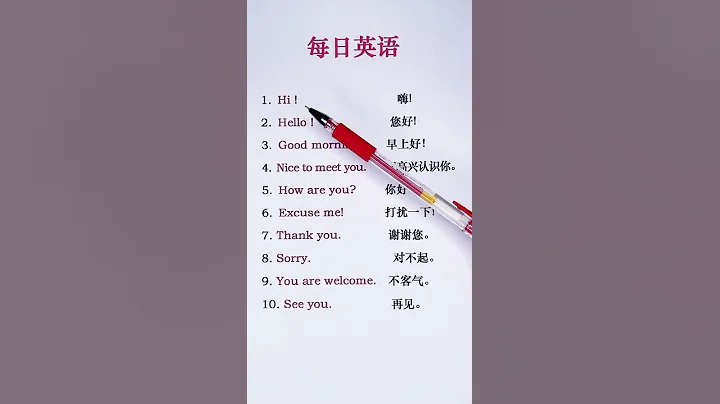
はじめまして:First meeting
When we Chinese meet and greet others for the first time, if it is a business occasion, we usually shake hands and say "hello", so what do the Japanese do?
"はじめまして", which means "first meeting". When Japanese people meet someone for the first time, they usually say this sentence, or add "よろしくお愿いします (please take care of me)" after it, and then add the standard Japanese action of bowing.
What will happen if a Japanese who likes to bow meets a Westerner who likes to shake hands?
Under normal circumstances, Japanese people will adopt the Western method, which is to shake hands, but some Japanese people may be used to bowing and will bow unconsciously while shaking hands. This is a bit ridiculous, but in fact it is completely unnecessary.

おはよう(ございます):Good morning
"おはよう(ございます)" can be said when meeting and greeting in the morning. It can be used in business situations, family members, friends, etc.
If you want to express respect, just say "おはようございます". For family and friends, you can be more casual and say "おはよう".
こんにちは:Hello/Good afternoon
こんばんは:Good evening
"こんにちは" and "こんばんは" are generally not said to family, friends and people with good relationships, because they feel a bit out of touch. But if you meet a neighbor you don’t know very well, etc., you can also use it.
So what should you say if you see a friend in the afternoon or evening and want to say hello?
If you are a boy, you can say: お~, よ, wai った? (have you been waiting for a long time?), おwai たせ (have you been waiting for a long time), 元気? (How are you doing? → Can be used when meeting friends who have not seen you for a long time) )wait.
If you are a girl: った? (have you been waiting for a long time?), おたせ (have you been waiting for a long time), 元気? (How are you doing?), 久しぶり (Long time no see), etc. can be used.

Finally, let’s talk about business situations.
When you go to work in the morning, when you meet your colleagues or boss, you can say: おはようございます.
At other times, when you meet colleagues or bosses, you can say: お tired (つか) れ様 (さま) です (hard work).
Before going back from get off work, you need to say hello to your colleagues and boss: お tired (つか) れ様 (さま) でした (Thank you for your hard work). Or add another sentence: "I'm sorry (しつれい) I'm leaving first".
When greeting customers, they usually say: お世语 (せわ)になっております (Thank you for taking care of me).

In addition, some people who have worked in Japanese restaurants, convenience stores, etc. may have experienced that whenever they see each other for the first time in a day, whether it is in the afternoon or evening, they will use "おはよう(ございます)" to say hello, does anyone know why this is?





















